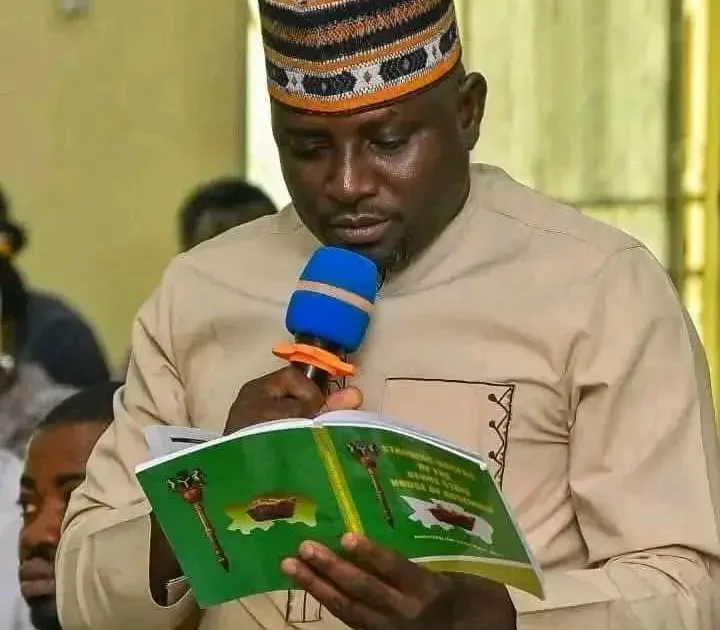The Benue State House of Assembly experienced a significant shift in leadership on Sunday with the election of Alfred Emberger as the new Speaker, succeeding Aondona Dajoh, who had recently resigned. This transition unfolded rapidly following a tumultuous week that saw Emberger and three other members suspended for allegedly attempting to oust the former speaker. The Sunday plenary session, designated as an emergency sitting and presided over by Deputy Speaker Lami Danaldi-Ogenyi, served as the stage for this dramatic reshaping of the Assembly’s leadership. The swift reversal of the suspensions and the subsequent, uncontested election of Emberger highlight the fluid political dynamics within the Benue State House.
The reinstatement of the suspended members was initiated by Majority Leader Saater Tiseer, whose motion to lift the suspension received immediate support from Samuel Jiji, representing the Logo state constituency. The Deputy Speaker, acknowledging the consensus of the Assembly, promptly declared the suspensions lifted, paving the way for the four members to rejoin the plenary session. This rapid reversal suggests a potential shift in alliances or a strategic recalibration within the House following Dajoh’s resignation. The return of the suspended members, particularly Emberger, who quickly ascended to the speakership, indicates that they hold significant influence within the Assembly.
With the suspended members back in the chamber, the process of electing a new Speaker commenced. Douglas Akyaa, representing Makurdi South, nominated Alfred Emberger, a nomination seconded by Abu Umoru of the Apa state constituency. The absence of any other nominations underscored Emberger’s apparent command of support within the House. This swift and unanimous endorsement suggests a pre-arranged agreement or a strong consensus within the Assembly regarding Emberger’s suitability for the speakership. The Clerk of the House, John Hwande, then administered the oath of office, formally installing Emberger as the new Speaker of the Benue State House of Assembly.
In his acceptance speech, Speaker Emberger acknowledged the contributions of his predecessor, commending Dajoh’s service and commitment to the Assembly and the people of Benue State. This gesture, while customary, also served to smooth over the recent tensions and project an image of unity within the House. Emberger then outlined his vision for his leadership, emphasizing inclusiveness, fairness, and respect for diverse opinions. These principles signal a potential shift in the Assembly’s internal dynamics, suggesting a more collaborative approach to decision-making.
Furthermore, Emberger pledged to foster harmonious working relationships with the executive and judicial branches of government while upholding the Assembly’s independence. This commitment to inter-branch cooperation while maintaining the separation of powers is crucial for the effective functioning of a democratic government. It suggests that Emberger intends to pursue a collaborative approach to governance, seeking consensus and cooperation with the other branches while preserving the Assembly’s distinct role and responsibilities.
The unexpected resignation of Speaker Dajoh, the subsequent suspension and swift reinstatement of four members, culminating in the unanimous election of Alfred Emberger as the new Speaker, represent a significant realignment of power within the Benue State House of Assembly. Emberger’s emphasis on inclusivity, fairness, and respect for diverse opinions, along with his commitment to inter-branch harmony, signals a potential shift in the Assembly’s operational style. The rapid and seemingly seamless transition suggests a degree of pre-planning and consensus-building behind the scenes. The focus now shifts to observing how Emberger’s leadership unfolds and whether his stated principles translate into concrete changes in the Assembly’s functioning and its relationship with the other branches of government.














